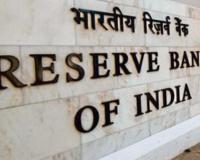Currency management exercise, not demonetization: RBI to Delhi HC on 2K note issue

New Delhi, May 26 (IANS) The Reserve Bank of India (RBI) on Friday told the Delhi High Court that its decision to withdraw Rs 2,000 notes from circulation is only a "currency management exercise and not demonetisation".
The central bank defended its decision on a PIL filed by petitioner lawyer Rajneesh Bhaskar Gupta challenging RBI's decision. The PIL argued that it lacks the independent authority, as per the RBI Act, to make such a decision.
Appearing for the bank, Senior Advocate Parag P. Tripathi urged before the court that the matter be heard on a later date as the bench has already reserved its judgment in a similar PIL by petitioner lawyer Ashwini Upadhya.
"This is a currency management exercise and not demonetisation. The bench has earlier reserved judgment in a matter. I am suggesting that let that order come and we can have it after that. Most of what is being contented would have been dealt with it there. It is the pure nature of economic policy," Tripathi said.
The petitioner has contended that the withdrawal of the banknotes after 4-5 years, with a specific deadline, is deemed "unjust, arbitrary, and contrary to public policy".
"This is beyond the jurisdiction of the RBI. There is no provision in the RBI Act saying that RBI can take such a decision independently. I would have understood if the central government had taken the decision," the petitioner said.
After hearing the parties, the court posted the matter for next hearing on May 29.
The parties were asked to submit a short note in the matter.
"Counsel for the RBI has informed the court that another petition with the same subject matter has been heard. He prays for listing on Monday. List on Monday," the court said.
The PIL says: "It is respectfully submitted that the RBI, as Respondent no 1, does not possess independent power under the Reserve Bank of India Act, 1934, to direct the non-issue or discontinuance of any denominational value banknotes. Such power is exclusively vested with the Central Government, as stated in section 24 (2) of the RBI Act, 1934."
The PIL highlights that the circular in question fails to indicate that the decision to withdraw the banknotes has been made by the central government.
It argues that the RBI has provided no explanation other than the "Clean Note Policy" for taking such a significant and arbitrary step of withdrawing the banknotes from circulation, without adequately considering the potential repercussions for the general public.
Referring to the provisions of the RBI's clean note policy, the PIL points out that damaged, counterfeit, or soiled banknotes of any denomination are typically withdrawn from circulation and replaced with newly printed ones.
"However, in the present case, only the Rs 2,000 denomination is being withdrawn within a specific deadline, without any indication of the RBI introducing a similar replacement banknote into circulation," advocate Gupta further emphasises in the PIL.
The PIL raises concerns over the impact of withdrawing the Rs 2,000 banknote, claiming that small vendors and shopkeepers have already ceased accepting it.
It further argues that the RBI has not provided any clarification regarding the benefits to either the RBI or the national economy from withdrawing the Rs 2,000 denomination. The PIL also drew attention to the well-known hardships faced by citizens during the demonetisation of Rs 500 and Rs 1,000 notes in 2016.
"It is respectfully contended that the Rs 2,000 denomination, printed in 2016 and thereafter, remains in excellent condition with robust security features and does not necessitate withdrawal from circulation, be it under the Clean Note Policy or any other grounds. Furthermore, the Clean Note Policy specifically mandates the withdrawal of damaged, counterfeit, or soiled banknotes, rather than the withdrawal of all intact banknotes," Gupta states in the PIL.
The PIL also highlights that a significant amount of public funds have been utilised for printing the Rs 2,000 notes, which will go to waste as a result of their withdrawal.
"It is respectfully argued that there is a possibility that the RBI's challenged notification/circular may induce anxious citizens to queue up at banks across the country during the hot weather of May, June, and July. This situation could lead to the loss of numerous lives, similar to the period of demonetisation in 2016 when over 100 citizens lost their lives due to the incorrect policy decision of demonetising Rs 1,000 and Rs 500 notes by the Central Government. Now, a similar scenario is unfolding in the name of the RBI's Clean Note Policy, despite the absence of any statutory authority," Gupta argues.




